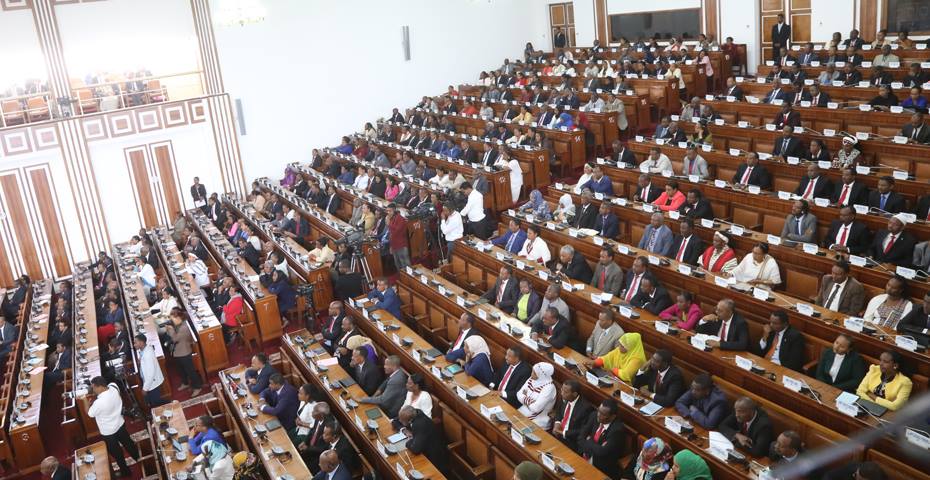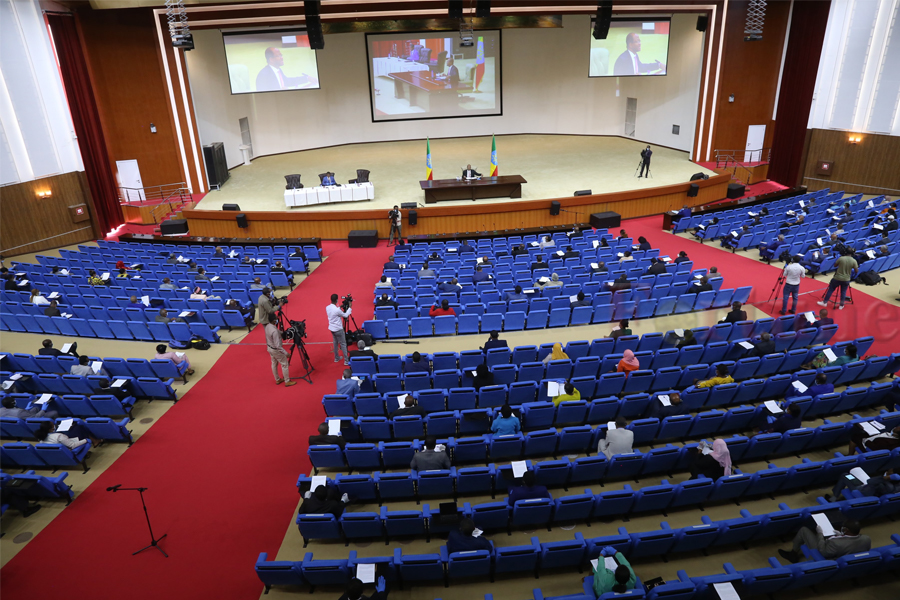
Life Matters | Jun 12,2021
A groundbreaking bill granting the government sweeping powers to trace, identify, seize, and investigate assets acquired through "unexplained means" was tabled before Parliament last week. According to its authors, the bill is designed to combat economic crimes threatening the country's financial stability. The legislation allows authorities to confiscate property based on civil standards of proof, even without a full criminal conviction.
The asset recovery draft proclamation seeks to integrate and expand the laws, while its critics warn of potential abuses and the need for careful safeguards to protect citizens' rights. If passed, the draft law, motioned to the federal legislative house by Meseret Haile, a government whip, would consolidate provisions from existing criminal, anti-corruption, and anti-money laundering laws into a single framework, expanding the scope of the government’s legal authority.
The bill represents a major shift in the legal approach to dealing with "unexplained wealth." Under the proposed law, the burden of proof would rest on individuals or institutions to demonstrate the legitimacy of acquired assets. This marks a departure from the current system, where prosecutors must prove that assets were obtained illegally.
"Sources of overnight wealth should be explained," said Tsega Wakjira, director general of the Asset Investigation & Recovery Directorate at the Ministry of Justice.
According to Tsega, the new bill targets the inadequacies of current legal frameworks, primarily targeting federal and regional officials suspected of corruption. She assured legislators that enforcement would not infringe on human rights, and only individuals with unexplained disparities between their income and accumulated wealth would be subject to scrutiny.
"It'll not be done haphazardly," Tsega told Fortune.
The bill, approved by the Council of Ministers, compels individuals and entities to prove the sources of their "unexplained assets" by presenting documentation within one month. In circumstances that merit their consideration, prosecutors may grant an extension of up to six months. Investigations can be initiated based on information from "credible sources, financial intelligence services, or reports from financial institutions."
Meseret, (MP-PP), argued that economic crimes have an undue impact on the country's potential gains, while unexplained assets exert pressure on tax income, financial flows, and foreign direct investment. According to him, by consolidating asset recovery provisions under a single law and expanding the legal scope, the government hopes to create a more efficient and effective system for combating financial crimes.
Critics, however, remain wary of the bill's potential for abuse.
Desalegn Chane, (MP-NAMA), voiced concerns that such laws could be misused to suppress dissent.
"Rights groups usually treat these 'types of laws' with some apprehension," Desalegn said.
Desalegn acknowledged the bill's importance in promoting law and order but warned that anti-terrorism laws had been misused. He called for special provisions to ensure the new legal instruments do not become "tools of oppression against dissenting voices."
Asset recovery laws have been gaining traction globally. In October, the Stolen Asset Recovery Initiative (StAR) by the World Bank and the United Nations (UN) published guidance for policymakers on implementing "Unexplained Wealth Order" systems. The two organisations have helped 40 countries, including Ethiopia, to draft such laws. The United Kingdom's UWO, an investigative measure, allows for civil confiscation of assets without a criminal conviction, similar to the provisions in the proposed bill.
The World Bank's asset recovery database shows that over 16 billion dollars in assets have been frozen, returned, or confiscated across 141 jurisdictions. However, legal experts stress the importance of fairness when adopting non-conviction-based asset recovery measures.
Menelik Solomon, a lawyer and former senior attorney at the Ministry of Revenues, recognised the limitations prosecutors face under the current system.
"It may allow authorities to ask how the money got into someone's account," Menelik said, referring to the new bill.
He cautioned that individuals unconnected to criminal activities could face unnecessary scrutiny without careful drafting and enactment.
"The high degree of informality poses a problem," he noted, stating that many Ethiopians do not maintain the kind of financial records required to prove their wealth's legitimacy. "Many people are not even included in the banking sector."
The bill stressed the importance of legal safeguards to prevent abuses. A statement by the Stolen Asset Recovery Report (StAR) released in June asserted the need for human rights considerations when shifting the burden of proof to respondents. It warned that failure to implement such safeguards could lead to injustice, a lack of public support, and potential inadmissibility by the courts.
Liqu Worku, a legal attorney and consultant, pointed out the difficulties of implementing asset recovery laws in Ethiopia, where asset registration and identification systems are still evolving.
"Owning property is a human right, after all," Liqu said.
He urged for fairness and transparency in the new legal framework.
Tewodros Getachew, president of the Ethiopian Federal Bar Association, echoed his apprehension. Tewodros called for rigorous public engagement before passing the Parliamentary floor.
"It raises several concerns when it becomes the governing principle," Tewodros warned.
Tewodros questioned the extent of research conducted and the capacity to administer the new law. He stated the need for vigilance and meticulous attention to detail before enacting a sweeping proclamation that could raise human rights issues.
"Laws should be designed to respond to emerging problems," he said.
PUBLISHED ON
Jun 15,2024 [ VOL
25 , NO
1259]

Life Matters | Jun 12,2021

Fortune News | Aug 26,2023

Fortune News | Aug 24,2019

Fortune News | May 05,2020

Commentaries | May 23,2021

Commentaries | Sep 03,2022

Commentaries | Oct 26,2019

Radar | May 31,2020

My Opinion | Sep 11,2020

Commentaries | Dec 19,2021

Dec 22 , 2024 . By TIZITA SHEWAFERAW
Charged with transforming colossal state-owned enterprises into modern and competitiv...

Aug 18 , 2024 . By AKSAH ITALO
Although predictable Yonas Zerihun's job in the ride-hailing service is not immune to...

Jul 28 , 2024 . By TIZITA SHEWAFERAW
Unhabitual, perhaps too many, Samuel Gebreyohannes, 38, used to occasionally enjoy a couple of beers at breakfast. However, he recently swit...

Jul 13 , 2024 . By AKSAH ITALO
Investors who rely on tractors, trucks, and field vehicles for commuting, transporting commodities, and f...

Oct 25 , 2025
The regulatory machinery is on overdrive. In only two years, no fewer than 35 new pro...

Oct 18 , 2025
The political establishment, notably the ruling party and its top brass, has become p...

Oct 11 , 2025
Ladislas Farago, a roving Associated Press (AP) correspondent, arrived in Ethiopia in...

Oct 4 , 2025
Eyob Tekalegn (PhD) had been in the Governor's chair for only weeks when, on Septembe...